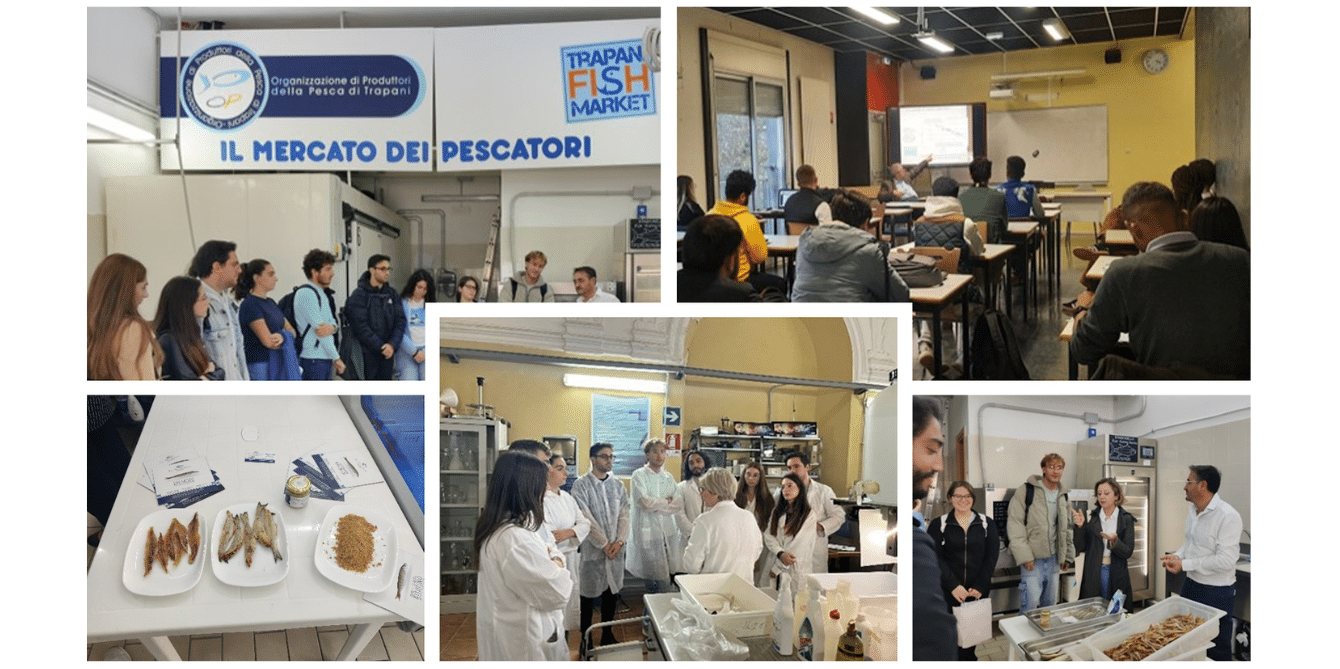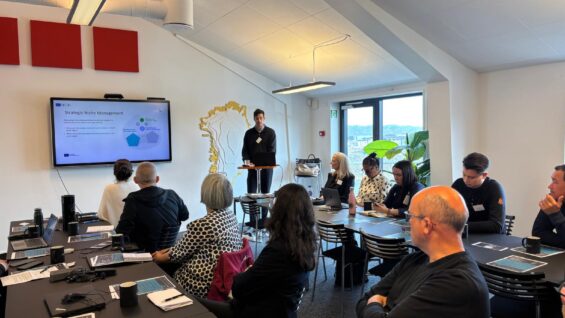Training and Innovation: A Successful Experience for the Blue Bioeconomy in Sicily
The University of Palermo (UNIPA) plays a central role in developing the blue bioeconomy pilot case study in Sicily, activating a territorial ecosystem of local actors. In collaboration with cooperatives, small and medium-sized enterprises (SMEs), local institutions, and the education sector, UNIPA has established a network dedicated to sustainable practices, focusing on minimising waste and adding value to by-products.
At the heart of this initiative lies a strong vision inspired by the principles of the circular economy, promoting the autonomy of local communities and encouraging ownership of—and responsibility for—the sustainable business models implemented. This approach enables local professionals to work within their own territories, reducing outward migration and strengthening local economic resilience.
In this context, education plays a crucial role in improving technical and entrepreneurial skills, fostering innovation, and enhancing the capacity for sustainable economic growth in the blue sector.
As part of its active involvement in the BlueRev project, UNIPA has contributed significantly to the development of curricula tailored to the blue growth sector. As the Italian hub of the project, UNIPA successfully designed and implemented a multidisciplinary training programme to promote the adoption of circular economy models in marine biotechnology.
The programme had clear and ambitious objectives:
-
developing advanced technical and scientific skills in the marine bioeconomy;
-
supporting the transition towards circular production models;
-
stimulating the creation of new sustainable business initiatives;
-
aligning training with the European Green Deal and the UN Sustainable Development Goals (SDGs).
One of the strengths of the initiative was its inclusive and interdisciplinary approach: more than 200 participants—including Master’s students, PhD candidates, entrepreneurs, and SMEs—benefited from theoretical content, practical experience, coaching sessions, and exchange activities among different actors in the supply chain.
The initiative goes beyond knowledge transfer, actively contributing to the social and territorial regeneration of the communities involved. UNIPA’s work is perfectly aligned with the broader mission of the BlueRev project, which aims to build a more resilient, inclusive, and innovative European blue bioeconomy.
UNIPA thus confirms its pivotal role in the Mediterranean pilot case study—connecting research, training, business, and territory—to help create a sustainable future.





